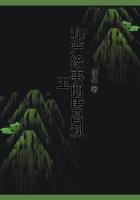Raleigh Chichester), is very hard on "Protestant Schools," and thinks that the Catholic system of constant watching is a remedy for bullying and other evils. "Swing-doors with their upper half glazed, might have their uses," he says, and he does not see why a boy should not be permitted to complain, if he is roasted, like Tom Brown, before a large fire. The boys at one Catholic school described by Colonel Raleigh Chichester, "are never without surveillance of some sort." This is true of most French schools, and any one who wishes to understand the consequences (there) may read the published confessions of a pion--an usher, or "spy." Amore degraded and degrading life than that of the wretched pion, it is impossible to imagine. In an English private school, the system of espionnage and tale bearing, when it exists, is probably not unlike what Mr. Anstey describes in Vice Versa. But in the Catholic schools spoken of by Colonel Raleigh Chichester, the surveillance may be, as he says, "that of a parent; an aid to the boys in their games rather than a check." The religious question as between Catholics and Protestants has no essential connection with the subject. A Protestant school might, and Grimstone's did, have tale-bearers; possibly a Catholic school might exist without parental surveillance. That system is called by its foes a "police," by its friends a "paternal" system. But fathers don't exercise the "paternal" system themselves in this country, and we may take it for granted that, while English society and religion are as they are, surveillance at our large schools will be impossible. If any one regrets this, let him read the descriptions of French schools and schooldays, in Balzac's Louis Lambert, in the "Memoirs" of M. Maxime du Camp, in any book where a Frenchman speaks his mind about his youth. He will find spying (of course)among the ushers, contempt and hatred on the side of the boys, unwholesome and cruel punishments, a total lack of healthy exercise; and he will hear of holidays spent in premature excursions into forbidden and shady quarters of the town.
No doubt the best security against bullying is in constant occupation. There can hardly (in spite of Master George Osborne's experience in "Vanity Fair") be much bullying in an open cricket-field. Big boys, too, with good hearts, should not only stop bullying when they come across it, but make it their business to find out where it exists. Exist it will, more or less, despite all precautions, while boys are boys--that is, are passing through a modified form of the savage state.
There is a curious fact in the boyish character which seems, at first sight, to make good the opinion that private education, at home, is the true method. Before they go out into school life, many little fellows of nine, or so, are extremely original, imaginative, and almost poetical. They are fond of books, fond of nature, and, if you can win their confidence, will tell you all sorts of pretty thoughts and fancies which lie about them in their infancy. I have known a little boy who liked to lie on the grass and to people the alleys and glades of that miniature forest with fairies and dwarfs, whom he seemed actually to see in a kind of vision. But he went to school, he instantly won the hundred yards race for boys under twelve, and he came back a young barbarian, interested in "the theory of touch" (at football), curious in the art of bowling, and no more capable than you or I of seeing fairies in a green meadow. He was caught up into the air of the boy's world, and his imagination was in abeyance for a season.
This is a common enough thing, and rather a melancholy spectacle to behold. One is tempted to believe that school causes the loss of a good deal of genius, and that the small boys who leave home poets, and come back barbarians, have been wasted. But, on the other hand, if they had been kept at home and encouraged, the chances are that they would have blossomed into infant phenomena and nothing better. The awful infancy of Mr. John Stuart Mill is a standing warning. Mr. Mill would probably have been a much happier and wiser man if he had not been a precocious linguist, economist, and philosopher, but had passed through a healthy stage of indifference to learning and speculation at a public school. Look again, at the childhood of Bishop Thirlwall. His Primitiae were published (by Samuel Tipper, London, 1808), when young Connop was but eleven years of age. His indiscreet father "launched this slender bark,"as he says, and it sailed through three editions between 1808 and 1809. Young Thirlwall was taught Latin at three years of age, "and at four read Greek with an ease and fluency which astonished all who heard him." At seven he composed an essay, "On the Uncertainty of Human Life," but "his taste for poetry was not discovered till a later period." His sermons, some forty, occupy most of the little volume in which these Primitiae were collected.
He was especially concerned about Sabbath desecration. "Iconfess," observes this sage of ten, "when I look upon the present and past state of our public morals, and when I contrast our present luxury, dissipation, and depravity, with past frugality and virtue, I feel not merely a sensation of regret, but also of terror, for the result of the change." "The late Revolution in France," he adds, "has afforded us a remarkable lesson how necessary religion is to a State, and that from a deficiency on that head arise the chief evils which can befall society." He then bids us "remember that the Nebuchadnezzar who may destroy our Israel is near at hand," though it might be difficult to show how Nebuchadnezzar destroyed Israel.















